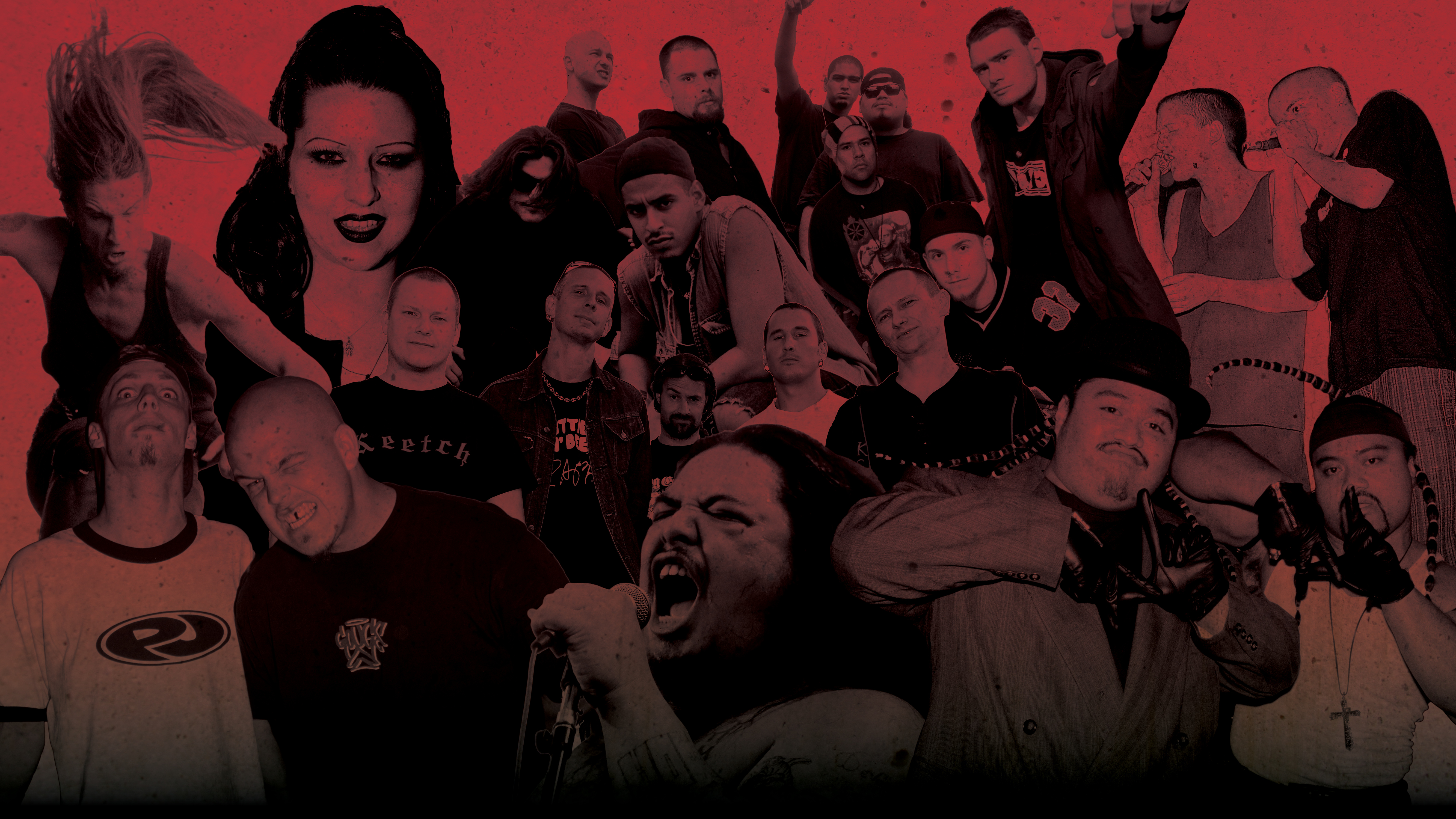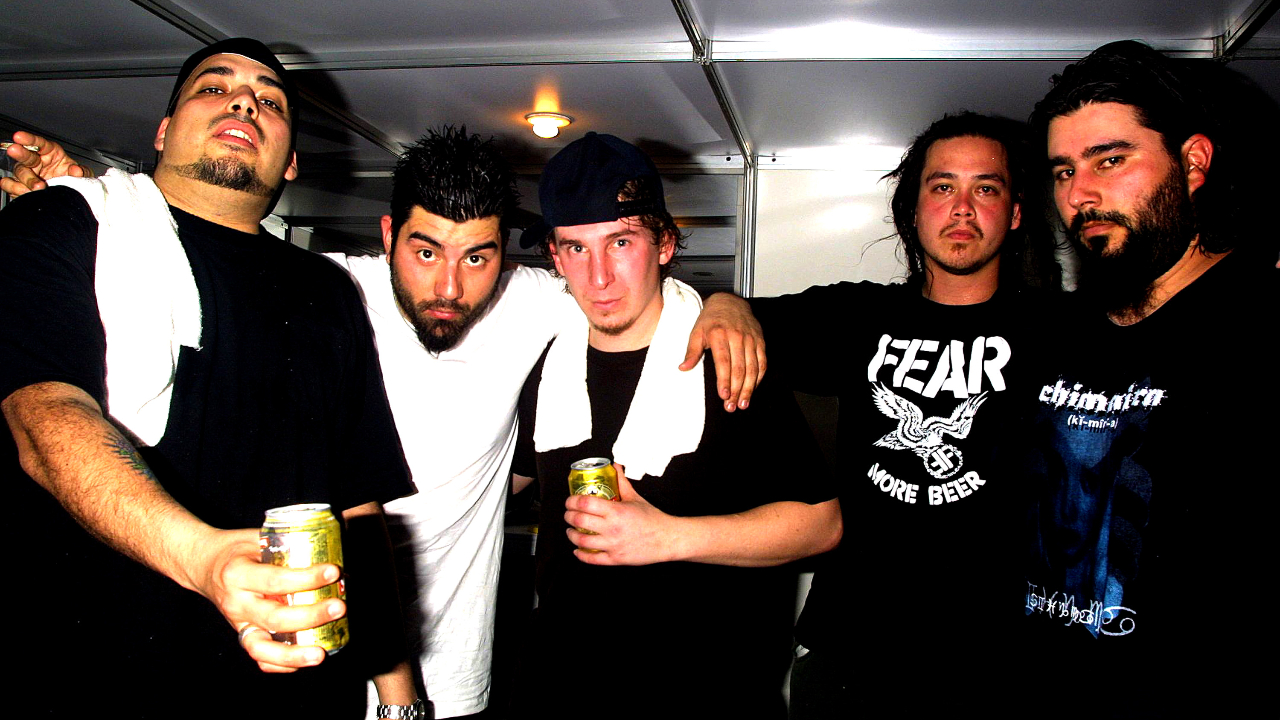10 rap metal bands that time forgot
The bands that tried to catch the 90s rap metal wave but got left stranded in its wake

Select the newsletters you’d like to receive. Then, add your email to sign up.
You are now subscribed
Your newsletter sign-up was successful
Want to add more newsletters?

Every Friday
Louder
Louder’s weekly newsletter is jam-packed with the team’s personal highlights from the last seven days, including features, breaking news, reviews and tons of juicy exclusives from the world of alternative music.

Every Friday
Classic Rock
The Classic Rock newsletter is an essential read for the discerning rock fan. Every week we bring you the news, reviews and the very best features and interviews from our extensive archive. Written by rock fans for rock fans.

Every Friday
Metal Hammer
For the last four decades Metal Hammer has been the world’s greatest metal magazine. Created by metalheads for metalheads, ‘Hammer takes you behind the scenes, closer to the action, and nearer to the bands that you love the most.

Every Friday
Prog
The Prog newsletter brings you the very best of Prog Magazine and our website, every Friday. We'll deliver you the very latest news from the Prog universe, informative features and archive material from Prog’s impressive vault.
“Fuck you, I won’t do what you tell me,” has been the clarion call of surly teenagers since the dawn of time. But in the early 90s, that line became the spark that lit the fuse on the entire rap-metal explosion thanks to the unstoppable impact of Rage Against The Machine’s debut single Killing In The Name.
There had been attempts to bridge the cultural gap between rap and metal before that, from Run DMC’s revolutionary 1984 single Rock Box to Anthrax’s love-letter to hip-hop I’m The Man three years later and onto Faith No More’s landmark 1989 mash-up Epic. But mostly these two scenes had spent much of the 80s studiously ignoring each other.
The success of Faith No More and Rage Against The Machine changed that. Suddenly, the a swam of bands fronted by rapping singers and singing rappers of varying skill and authenticity took over MTV. Some were good, some were godawful, some were about the politics and some were just here for the party. But the result was the same: rap and metal had clambered into bed together and found that, hey, they weren’t that different after all.
Rap-metal’s moment of cultural domination was brief, and it swiftly became a punchline. Yet its legacy was instantly evident – the nu-metal scene that defined the late 90s was basically rap-metal with a couple of Cure albums.
Today, the scene’s leading lights remain venerated: Rage Against The Machine are rightly held up as one of the defining bands of the last 30 years. But dozens of their contemporaries have slipped down the back of the sofa of history, with little chance of recognition. This is for them – a chance to relive rap-metal’s glory years via the bands no one ever talks about any more. And fuck you, they still won’t do what you tell them.

Boo-Yaa T.R.I.B.E
Where rap-metal was mostly a bunch of longhairs and hardcore kids suddenly discovering their inner Ice Cube, Boo-Yaa T.R.I.B.E came at it from the other direction – and pity anyone who got in their way. Six heavyweight Samoan-American brothers with muscles on their muscles and first-hand knowledge of LA gang culture, they started out funky but got heavier as the 90s progressed. 1993’s Faith No More collaboration, Another Body Murdered, from the genre-smashing Judgment Night OST album, gave them a hall pass to rap-metal immortality, though 1997’s self-explanatory Angry Samoans album remains their own rap-metal high water mark.
Manhole
Tairrie B was a fireball burning through the mid-90s metal scene. A onetime protégé of NWA’s Eazy E, she was the first female West Coast rapper to release a full-length album before changing lanes and forming rap-metallers Manhole. Their raging, Ross Robinson-produced 1995 debut album, All Is Not Well, was truly revolutionary; here was a woman taking on subjects that no one else in metal was touching at the time (sexual assault, abusive relationships, music industry misogyny). Manhole would change their name to Tura Satana and dial back the rap-metal on follow-up, Relief Through Release, but the breakout success they deserved still eluded them.
Sign up below to get the latest from Metal Hammer, plus exclusive special offers, direct to your inbox!
Phunk Junkeez
Proud owners of the most rap-metal name in the history of rap-metal, the big-in-Phoenix Phunk Junkeez were quick out of the gate with 1992’s self-titled debut album - a record that sounded like the Beastie Boys if the Beastie Boys were stuck in some perpetual cartoon brat-punk adolescent time-warp. Ross Robinson produced 1995’s career highpoint, Injected, featuring the rap-metal cover of Kiss’s I Love It Loud that the world really didn’t know it needed and probably didn’t want anyway, but even that couldn’t help them become big anywhere else but in Phoenix.
Clawfinger
AKA the Swedish Rage Against The Machine. Stockholm rabble-rousers Clawfinger had the great thwanging grooves, the anti-establishment/anti-racist anthems (The Truth, the nobly-intentioned but unfortunately titled N***er). and even a frontman with sort-of the same first name (rapping beanpole Zak Tell). Sadly, Zack de la Rocha and co had already cornered the market in hectoring, proto-SJW rap-metal - though Clawfinger remain one of the few bands who can say that Rammstein were their support act.
Downset
Anger, Empower, Pure Trauma - Downset wore their fury in their songtitles. Formerly a hardcore band named Social Justice, the LA four-piece hopped on the post-RATM rap-metal bandwagon with 1994’s self-titled debut album and 1995 follow-up, Do We Speak A Dead Language (both still unsung genre classics). As subtle as the ‘pop-pop-pop’ gunfire sounds singer and one-man ragesplosion Rey Oropeza spat out during Anger, what they lacked in originality they made up for in sheer impact - not least during their fearsome live shows.
Dog Eat Dog
Every scene needs its court jesters, and New Jersey goombahs Dog Eat Dog had the pointy headgear and jangling bells on their hands and feet. A spin-off from late 80s hardcore brats, Mucky Pup, they straddled the worlds of punk, metal and rap, plastering on the sax and brass for good measure. Rock club staples No Fronts and Isms wrapped socially conscious messages up in frothy, hip hop-adjacent mid-90s rock that wasn’t going to start any riots but sure as hell could fill a dancefloor. And 1996 single Rocky is one of the era’s great lost (non-rap-metal) anthems.
Senser
The UK was rubbish at the whole rap-metal thing, mainly because Brits were too polite to explode into revolutionary fervour when somebody asked them to tidy their bedrooms. Senser were a notable exception. The South London crew had feet in the underground punk and rave scenes, and their still-vibrant 1994 debut album Stacked Up pulsed with non-compliant energy - livewire 1994 single Age Of Panic is the sound of a 90s Britain that never gets written about.
Shootyz Groove
The rap-metal band that even rap-metal fans forget about. The Bronx outfit’s 1995 debut album Jammin’ In Vicious Environments (yeah, ‘J.I.V.E.’ – thanks guys) ticked all the boxes: quasi-funky grooves, strategic samples, period-piece scratching, socially-aware-dudes-who-hella-like-to-party lyrics. None of which saved Shootyz Groove from being unceremoniously bundled through the door marked ‘Obscurity’.
Zebrahead
There’s way more to Zebrahead than rap-metal, but they featured rapper Ali Tabatebaee in the line-up so they’re in this list and sue us if you don’t like it. The Orange County band’s genre-hopping 1998 debut album, Waste Of Mind, is a semi-classic that should have been huge, but it was lost amid nu metal’s don’t-hurt-me-daddy angst and frathouse buffoonery. But they’re still going strong today so, hey, maybe it‘s not too late for ’em.
Confrontation Camp
Chuck D is hip hop royalty, but the Public Enemy mouthpiece’s rap-metal side-project Confrontation Camp could not get arrested when they released their sole, not-on-Spotify album, 2000’s Objects In The Mirror Are Closer Than They Appear. Sure, it lacked PE’s fist-in-the-face impact and the Bomb Squad’s riotstarting production, and Chuck’s foghorn proclamations largely took a backseat to co-vocalist Kyle Jason, but the fact that everyone was way more interested in Crazy Town showed what a screwed up time the early 00s truly were.
Dave Everley has been writing about and occasionally humming along to music since the early 90s. During that time, he has been Deputy Editor on Kerrang! and Classic Rock, Associate Editor on Q magazine and staff writer/tea boy on Raw, not necessarily in that order. He has written for Metal Hammer, Louder, Prog, the Observer, Select, Mojo, the Evening Standard and the totally legendary Ultrakill. He is still waiting for Billy Gibbons to send him a bottle of hot sauce he was promised several years ago.

